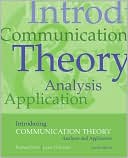Category Books
- Fiction Books & Literature
- Graphic Novels
- Horror
- Mystery & Crime
- Poetry
- Romance Books
- Science Fiction & Fantasy
- Thrillers
- Westerns
- Ages 0-2
- Ages 3-5
- Ages 6-8
- Ages 9-12
- Teens
- Children's Books
- African Americans
- Antiques & Collectibles
- Art, Architecture & Photography
- Bibles & Bible Studies
- Biography
- Business Books
- Christianity
- Computer Books & Technology Books
- Cookbooks, Food & Wine
- Crafts & Hobbies Books
- Education & Teaching
- Engineering
- Entertainment
- Foreign Languages
- Game Books
- Gay & Lesbian
- Health Books, Diet & Fitness Books
- History
- Home & Garden
- Humor Books
- Judaism & Judaica
- Law
- Medical Books
- New Age & Spirituality
- Nonfiction
- Parenting & Family
- Pets
- Philosophy
- Political Books & Current Events Books
- Psychology & Psychotherapy
- Reference
- Religion Books
- Science & Nature
- Self Improvement
- Sex & Relationships
- Social Sciences
- Sports & Adventure
- Study Guides & Test Prep
- Travel
- True Crime
- Weddings
- Women's Studies
Introducing Communication Theory: Analysis and Application » (4th Edition)

Authors: Richard L. West, Lynn Turner, Lynn H. Turner
ISBN-13: 9780073385075, ISBN-10: 0073385077
Format: Paperback
Publisher: McGraw-Hill Companies, The
Date Published: February 2009
Edition: 4th Edition
Author Biography: Richard L. West
Richard L. West, Ph.D., is Professor and Chair of the Department of Communication Studies at Emerson College. He received his B.A. And M.A. from Illinois State University and his Ph.D. from Ohio University. Rich has been teaching since 1994. He began teaching communication theory as a graduate student and has taught the class with enrollments spanning 12-200 students!
He is the Immediate Past President of the Eastern Communication Association (ECA). He is also past Director of the Educational Policies Board of the National Communication Association (NCA) where he also served as a member of NCA’s Executive Committee. In 2000 and 2001, Illinois State University and Ohio University respectively recognized him as “Outstanding Alumnus in Communication.” In 2008, ECA honored him as a Research Fellow. West is the co-author of nearly 40 articles, essays, and monographs, a presenter of over 50 professional papers, and co-editor (with Lynn Turner) of The Family Communication Sourcebook (Sage Publications). West is the co-author of four books in multiple editions (Introducing Communication Theory, Perspectives on Family Communication, Understanding Interpersonal Communication, Gender and Communication). He is also a current member of seven editorial boards in communication studies.
West’s research centers upon a few different areas: communication and pedagogy, communication themes in the contemporary family, and culture, identity, and human relationships. He is completing a study (with Lynn Turner) on the communication patterns of children in lesbian- and gay-headed households. He is also currently analyzing data that examines the influence of family life on classroom participation.
West’s expertise has been featured in a number of mediated outlets, including the Christian Science Monitor, USA Today, Toronto Globe and Mail, Pittsburgh Post-Gazette, New Hampshire Public Radio, Maine Public Radio, www.cbs.com, among others. In addition to NCA and ECA, West is a member of a number of professional organizations: National Communication Association, American Communication Association, Western States Communication Association, Southern States Communication Association, Central States Communication Association, Eastern Communication Association, and the Religious Communication Association.
Lynn H. Turner teaches in the College of Communication at Marquette University. She received her Ph.D. from Northwestern University in 1989. She is the author of several journal articles, books, and book chapters focused on communication studies. She is the recipient of the Marquette University College of Communication Research Award (1998), the Organization for the Study of Communication, Language, and Gender’s Outstanding Book Award (1997) and Outstanding Article Award (2000). She is guest editor (with Richard West) for a special issue of the Journal of Family Communication and she serves on the editorial board of several communication journals. She is the Vice-President of Central States Communication Association and Past-President of the Family Division of the National Communication Association. Her current research interests include family communication, gendered communication, and communication and relationships.
Book Synopsis
This text introduces the field of communication to students who may have little or no background in communication theory. Its three overriding goals are to help students understand the pervasiveness of theory in their lives, to demystify the theoretical process, and to help students become more systematic and critical in their thinking about theory.
Table of Contents
Preface
Part One. Setting the Stage
Part Two. Understanding the Dialogue
THE SELF AND MESSAGESChapter 5. Symbolic Interaction Theory Chapter 6. Coordinated Management of Meaning Chapter 7. Cognitive Dissonance Theory Chapter 8. Expectancy Violations Theory
RELATIONSHIP DEVELOPMENTChapter 9. Uncertainty Reduction Theory Chapter 10. Social Penetration Theory Chapter 11. Social Exchange TheoryChapter 12. Relational Dialectics TheoryChapter 13. Communication Privacy Management Theory
GROUPS AND ORGANIZATIONSChapter 14. GroupthinkChapter 15. Structuration TheoryChapter 16. Organizational Culture TheoryChapter 17. Organizational Information Theory
THE PUBLICChapter 18. The RhetoricChapter 19. DramatismChapter 20. The Narrative Paradigm
THE MEDIAChapter 21. Cultural StudiesChapter 22. Cultivation AnalysisChapter 23. Uses and Gratifications Theory Chapter 24. Spiral of Silence TheoryChapter 25. Media Ecology Theory
CULTURE AND DIVERSITYChapter 26. Face-Negotiation TheoryChapter 27. Communication Accommodation TheoryChapter 28. Muted Group TheoryChapter 29. Standpoint Theory
Part Three: On the Horizon...Chapter 30. Moving in New Directions
Subjects
 Media
Media  Communications - General & Miscellaneous
Communications - General & MiscellaneousNonfiction
 Social Sciences
Social Sciences  Media & Communications
Media & CommunicationsScience & Nature
 Social Sciences
Social Sciences  Media & Communications
Media & CommunicationsScience & Nature
 All Science & Nature
All Science & Nature  Mathematics
MathematicsSocial Sciences
 Media & Communications
Media & Communications  Communications - General & Miscellaneous
Communications - General & MiscellaneousNonfiction
 Entertainment
Entertainment  Media
MediaNonfiction
 Science & Nature
Science & Nature  Mathematics
MathematicsNonfiction
 Science & Nature
Science & Nature  All Science & Nature
All Science & Nature
